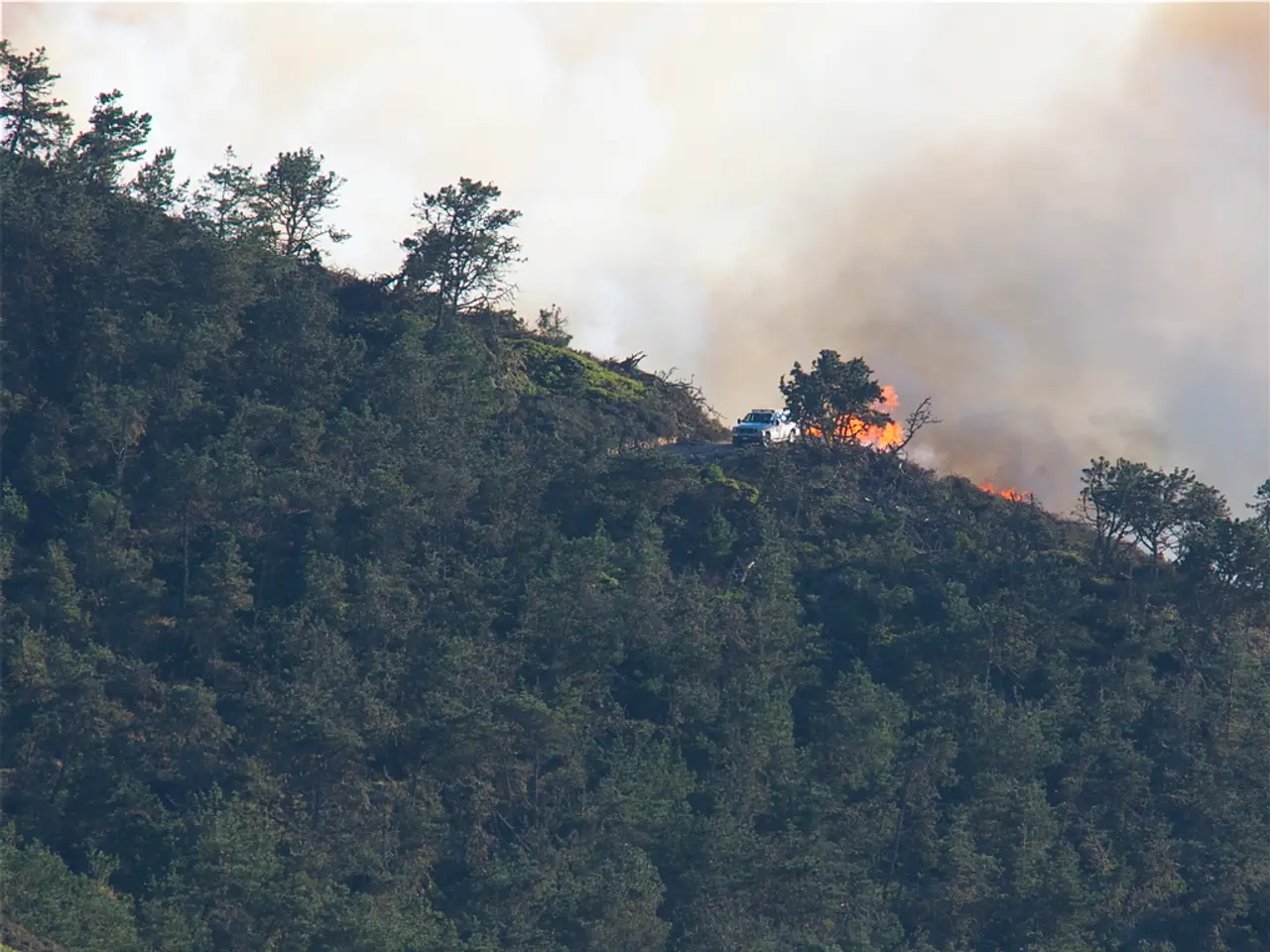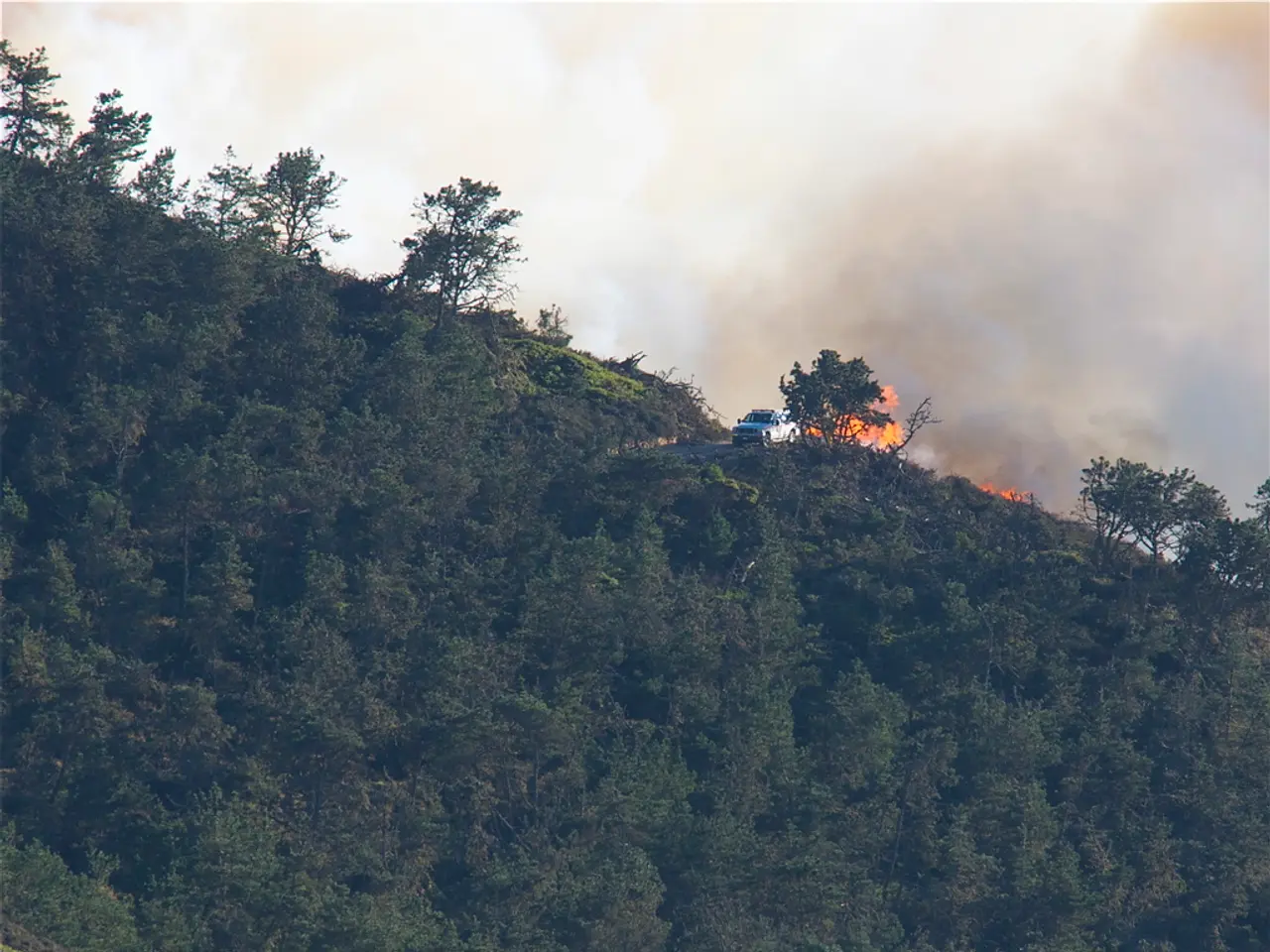Wildfires in Canada generate smoke that spreads across vast Midwest regions, causing air quality to deteriorate significantly.
Smoke from Canadian wildfires is expected to spread as far south as Tennessee and Missouri starting Saturday, causing air quality concerns in several Midwestern states. The smoky skies have already been observed in Minnesota, Iowa, Wisconsin, Michigan, eastern Nebraska, and parts of Indiana and Illinois.
The air quality in some parts of Minnesota has exceeded the Air Quality Index (AQI) of 150 on Saturday, which is considered unhealthy for everyone. According to state health officials, the air could remain unhealthy for sensitive groups through Monday.
The AQI, a system used to communicate how much air pollution is in the air, breaks pollution down into six categories and colours, ranging from "good" (green) to "hazardous" (maroon). On Saturday, parts of Minnesota were in the red (unhealthy) or even purple (very unhealthy) categories.
The city of Minneapolis has experienced some of the worst air pollution in the world since Friday, according to the Switzerland-based air quality monitoring database IQAir. Anything above 150 on the AQI is considered bad for everyone.
The smoky air results from heavy ground-level smoke transported by northerly winds from Canadian wildfires, often lingering near the surface due to local high-pressure systems and light winds that limit smoke dispersion. These conditions have persisted throughout the summer and are predicted to continue as wildfire frequency and intensity increase due to warmer and drier climate conditions.
People with asthma, lung disease, heart disease, children, older adults, pregnant women, and others susceptible to poor breathing conditions are advised to take precautions. Sensitive groups are advised to avoid prolonged or heavy exertion and limit outdoor time during these events.
To minimise outdoor activities and exposure during high-smoke periods, people are advised to avoid burning things that could make the air pollution worse and keep windows and doors closed to keep the smoke from getting inside. Canadian environmental officials predict that smoke from forest fires will persist into Sunday for some areas.
In conclusion, wildfire smoke from Canada causes unhealthy air quality across Minnesota and other Midwestern states, adversely affecting sensitive populations by increasing respiratory irritation and health risks during these smoke episodes. Public health advisories recommend following the advice provided to minimise health risks during these smoke events.
- The smoky weather, caused by Canadian wildfires, has prompted scientists to warn of climate-change risks, as the prolonged periods of high-pressure systems and light winds have allowed the smoke to linger, potentially exacerbating health issues, especially for susceptible groups.
- Environmental-science researchers have found that the frequency and intensity of wildfires have increased due to warmer and drier climate conditions, contributing to the ongoing spread of unhealthy air quality across the Midwestern states, necessitating public health advisories and precautions for sensitive groups.
- To combat the health risks posed by the smoky weather and its impact on air quality, it is essential that individuals adhere to environmental-science guidelines, such as minimising outdoor activities, avoiding burning things that could worsen air pollution, and keeping windows and doors closed during high-smoke periods.








